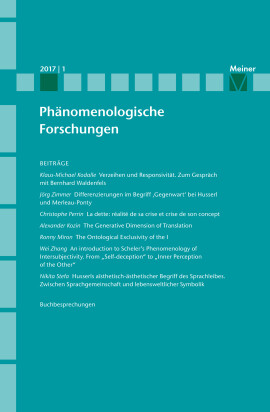
ZEITSCHRIFTENHEFT
Bd. 2017 (2017), Heft 1: Phänomenologische Forschungen 2017-1
Herausgeber:
Phänomenologische Forschungen, Bd. 2017
(2017)
In diesem Heft
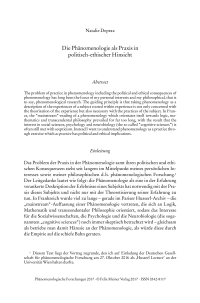
Nachruf auf Marc Richir
Phänomenologische Forschungen, Bd. 2017 (2017), Heft 1 : S. 7–10
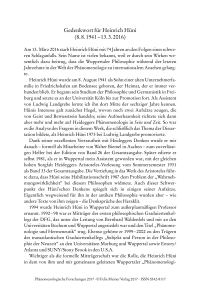
Gedenkwort für Heinrich Hüni
Phänomenologische Forschungen, Bd. 2017 (2017), Heft 1 : S. 11–12
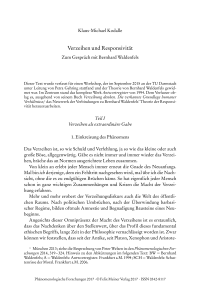
Verzeihen und Responsivität
Zum Gespräch mit Bernhard WaldenfelsPhänomenologische Forschungen, Bd. 2017 (2017), Heft 1 : S. 13–37
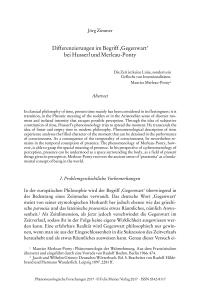
Differenzierungen im Begriff, Gegenwart‘ bei Husserl und Merleau-Ponty
Phänomenologische Forschungen, Bd. 2017 (2017), Heft 1 : S. 39–53
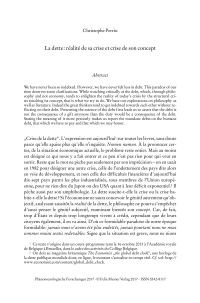
La dette: réalité de sa crise et crise de son concept
Phänomenologische Forschungen, Bd. 2017 (2017), Heft 1 : S. 55–76
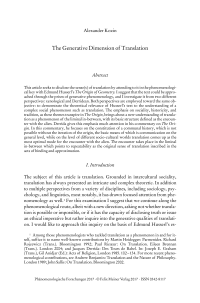
The Generative Dimension of Translation
Phänomenologische Forschungen, Bd. 2017 (2017), Heft 1 : S. 77–95
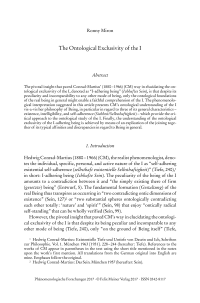
The Ontological Exclusivity of the I
Phänomenologische Forschungen, Bd. 2017 (2017), Heft 1 : S. 97–116
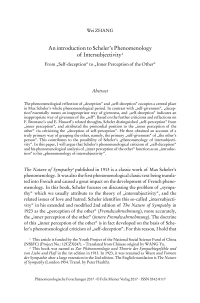
An introduction to Scheler’s Phenomenology of Intersubjectivity
From„Self-deception“ to „Inner Perception of the Other“Phänomenologische Forschungen, Bd. 2017 (2017), Heft 1 : S. 117–133
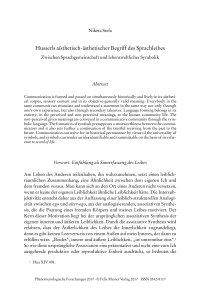
Husserls aisthetisch-ästhetischer Begriff des Sprachleibes
Zwischen Sprachgemeinschaft und lebensweltlicher SymbolikPhänomenologische Forschungen, Bd. 2017 (2017), Heft 1 : S. 135–156


 Powered by CloudPublish
Powered by CloudPublish